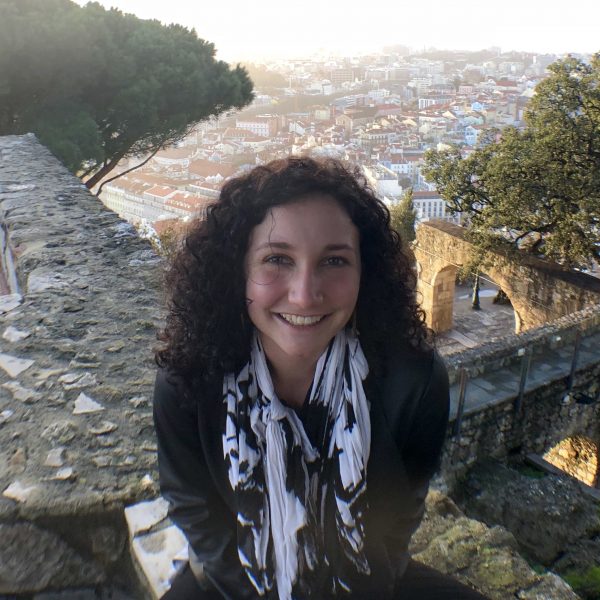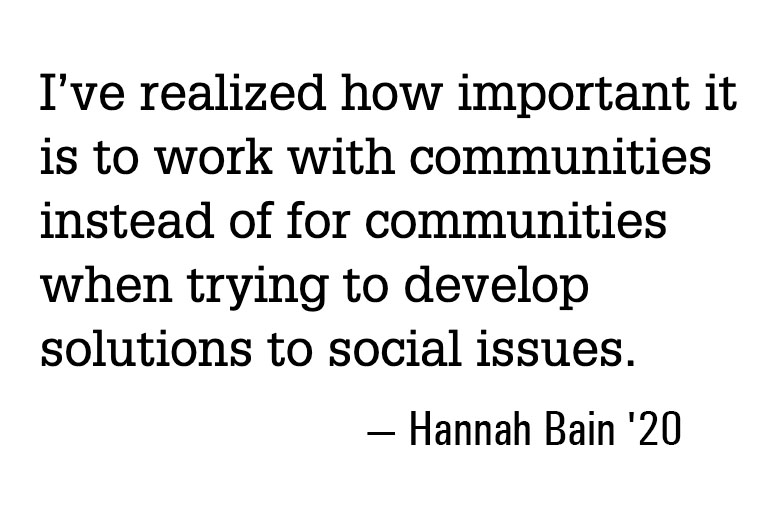Hannah Bain ’20 was named a 2019-2020 Social Innovation Fellow. The year-long program enables innovators at NC State to learn and practice social entrepreneurship by working in teams to create and launch a project that seeks to achieve positive social impact.

A senior studying communication, Spanish, and international studies with a minor in nonprofit studies, Bain is passionate about public health and the way emerging technologies can improve access to health care around the world. “I love how people from all different backgrounds can come together in support of a great cause,” Bain said. “I want my career and life in general to be focused on creating social good.”
As a Social Innovation Fellow, Bain has worked on a team of five students to improve the wellbeing of migrant farmworkers by increasing access to drinking water and decreasing heat-related deaths and illnesses. Through conducting their own research, Bain’s team learned that migrant farmworkers are 20 times more likely to die from heat-related illnesses than the average person in the U.S. civilian workforce.
Bain traveled to Dunn, N.C., to speak with farmworkers about concerns in their work environments and to observe their living conditions. To her surprise, “they told us that they had no problems, that they were used to the heat, and that they had access to water in the fields. That is when we realized the issue was much more complex and involved lifestyle choices, cultural differences, and power imbalances between the farmers and farmworkers.” The team pivoted its approach for the spring semester in response to these findings.
Through Social Innovation Fellows, Bain said she has learned the importance of asking “why” and seeking the root of issues. “Real-life problems are typically ambiguous and tied to complex, structural issues.”

Bain saw a connection between her experiences as a Social Innovation Fellow and as a Park Scholar. “Both programs have challenged me to tackle questions and issues that can’t be solved with an equation or answers in a textbook,” Bain explained. “They both place a heavy focus on the importance of meaningful service – not going into a community and solving all of its issues but rather learning from the community and working with community members to address complex issues.”
Bain credited both programs with teaching her how to solve real-life issues, how to ask the right questions, and how to work effectively on interdisciplinary teams. “I have felt myself develop as a leader and as a more well-rounded person thanks to these programs. Now asking big questions and tackling ambiguous issues doesn’t scare me; it excites me.”
Senior Park Scholar Emily Neville’s company Reborn Clothing Co. is also part of the Social Innovation Fellows program. Reborn Clothing Co. reduces textile waste by upcycling unused garments into new products, and Social Innovation Fellows are helping the company manage growth and construct a marketing plan emphasizing its sustainable and mission-driven business.